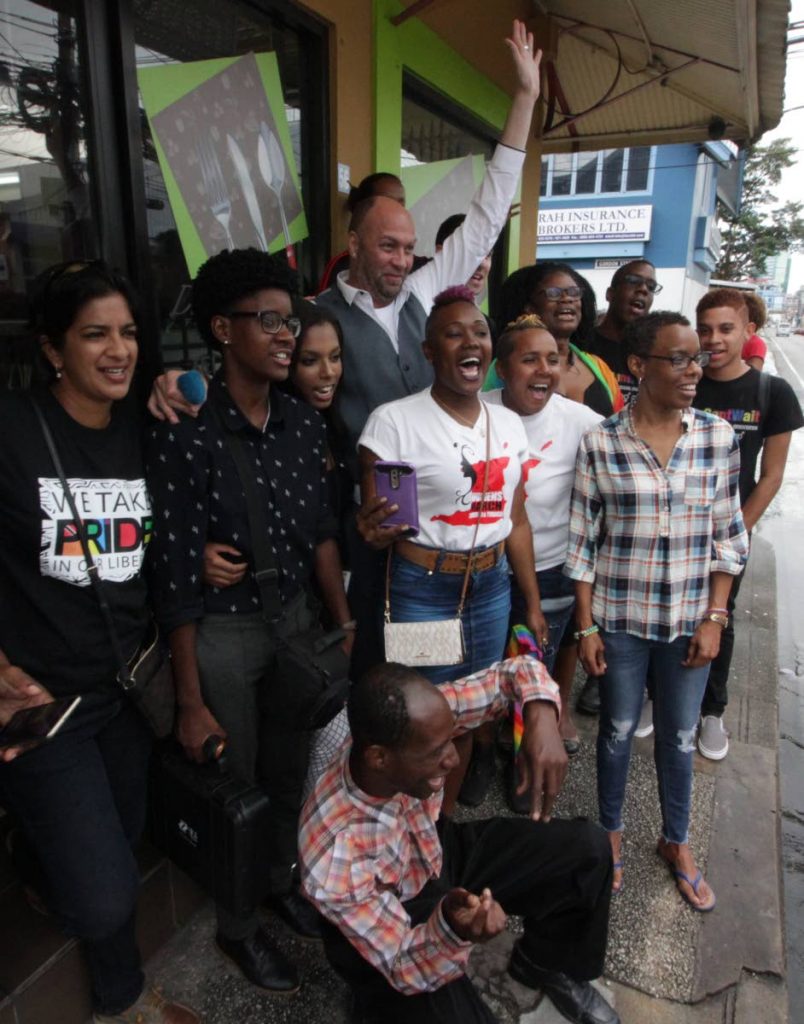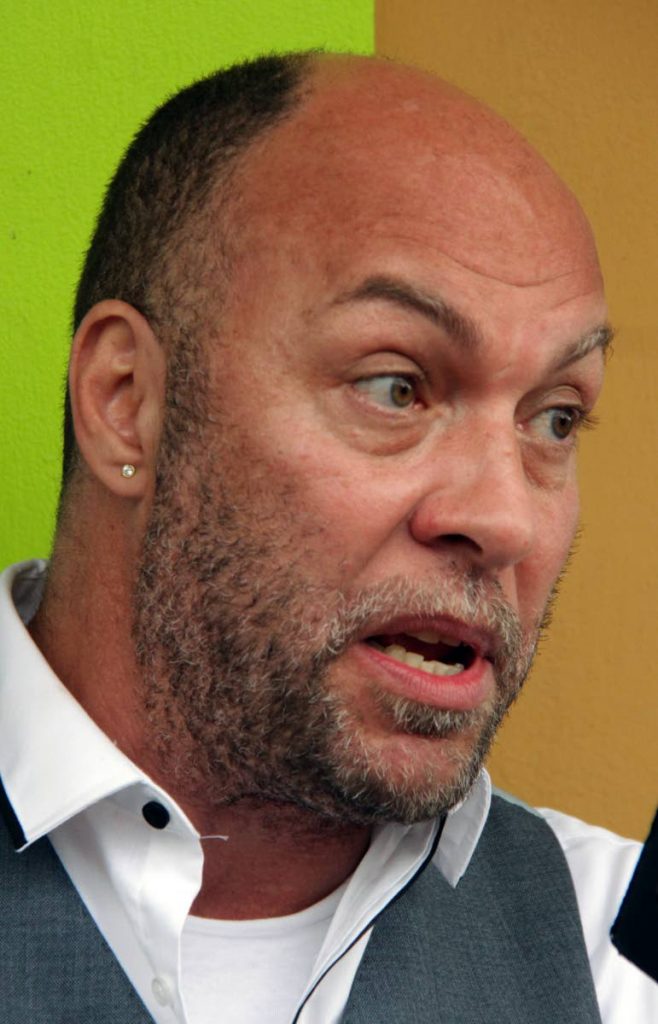Gay rights victory moved so many to tears

JOSHUA SURTEES
Tonight, when gay men and women go to bed in TT, they do so knowing law and justice are on their side. High court justice Devindra Rampersad has made it so.
He has removed the “sword of Damocles” hanging over them. He has ruled that for the law to be constitutional, any Trinidadian must be free “to make decisions as to who he or she loves.” His ruling means Jason Jones, a gay Trinidadian exiled to London because of his homosexuality, has made legal history.

At times, when Rampersad spoke, my eyes filled with tears. I looked up and saw Jones crying too. In the public gallery, the emotion overcame Saucy Pow. Others in the packed courtroom exchanged glances and smiles, their joy concealed in furtively raised and lowered eyebrows. Fellow activist Colin Robinson, equal parts ally and nemesis of Jones, appeared at times overwhelmed.
We were hearing a piece of poetry, a moment of Trinidadian history, of Caribbean history, of world history. Rampersad was setting people free.
Like Derek Walcott reeling off a soliloquy, he delivered the structurally humane judgement that the State does not have the right to criminalise consensual sex between two adults of the same sex.
In courtroom nine of the Hall of Justice, a little after 10 o’clock on Thursday morning, time stood still.
“This is a case about the dignity of the person,” he said. “And not about the will of the majority or any religious view. History has proven that the two do not always coincide. As can be seen by the subjugation and virtual extinction of the indigenous and First Nation people upon the discovery of the New World, the Jewish experience in Nazi Germany, and the radical religious justification adopted by the Ku Klux Klan to justify its reign of terror and hate.”
This urbane judge, who I am reliably informed is also a Hindu pundit, held the fate of a minority community in his hands. He did not fumble the ball. His words reminded the historically displaced, dispossessed people of this land that they too were once oppressed for who they are.
“Maintaining an unenforced law on the statutes makes no logical sense and instead seems more vindictive than protective or curative,” he reasoned.
The court must reconvene on July 4 to decide with finality what to do with the abominable sections 13 and 16, which have stained the statutes. One hopes they are stricken outright.
Twice during the ruling, the judge chastised members of the press for not turning off their phones. The second time he even left the room, informing us he would come back when we had done so. We felt like his naughty teenage children. He was firm but fair. I swooned.
“ARE you heterosexual?” a Jamaat al Muslimeen member demanded to know, earlier on outside the court.
They had gathered to tell us what Allah thought of the litigation.
Yes, I replied.
“You have a wife?”
Yes, I said. But does Allah not love everybody on this earth, regardless?
“I don’t know,” he said. “He eh love them.”
But he’s wrong, and on the wrong side of history.
This was the culmination of a journey. I first met Jones in London in 2016, at the screening of an independent Trinidadian film. I got a parking ticket that night. It was worth it. Jones was a boisterous audience member. Afterwards he told me he was taking the Government to court. I wasn’t sure how serious he was. Six months later he did it. Another year on, he has changed people’s lives forever.
Outside the court, the newly liberated youths received the news rapturously. The rain had given way to fierce sun. A huddle gathered around the victorious claimant. The press microphones invaded his private space, but his right to privacy was no longer violated. The savings clause had been swept away. Of that relic, judge Rampersad suggested, “We continue to imprison ourselves in colonialism.”
The Jamaat drifted away. Outside the Red House, a wannabe preacher woman screeched about Leviticus, abomination and death.
I ignored her. I thought about EM Forster and Jeanette Winterson. Caleb Orozco and Maurice Tomlinson. I felt drained. I needed curry from Ali’s in Town Centre Mall. I needed a sugary drink.
The Government will appeal the ruling, but Jones’ victory will ultimately be upheld by the Privy Council. Jones is readying himself for more years of legal action to reach that conclusion.
Some Trinis may whine and moan. They’ll soon get over it.
In many ways, it’s about finding the right narrative. On a day when eloquence ruled, that notion was perhaps fittingly summarised for me by an older Trini gentleman, evidently unconstrained by political correctness.
“As long as they eh b-----n’ me, I good!” he said.
I think we can all relate to that.

Comments
"Gay rights victory moved so many to tears"